The Well-Tempered Ear
Today – Monday, March 29 – is World Piano Day. Here are links to free online recitals. What does the piano mean to you? Did it play a role during the pandemic?
Leave a Comment
PLEASE HELP THE EAR. IF YOU LIKE A CERTAIN BLOG POST, SPREAD THE WORD. FORWARD A LINK TO IT OR, SHARE IT or TAG IT (not just “Like” it) ON FACEBOOK. Performers can use the extra exposure to draw potential audience members to an event. And you might even attract new readers and subscribers to the blog.
By Jacob Stockinger
Today – March 29, 2021 – is World Piano Day.
That is because today is the 88th day of 2021.
Gotta have some kind of code or symbolic meaning, after all.
In any case, there are virtual online celebrations all over the world. Here is a link to the official welcoming website that also lists Spotify and SoundCloud playlists from past years and dozens of worldwide events this year, running from March 25-30: https://www.pianoday.org
You can also find more on Google, Facebook, Instagram and Twitter.
The piano means a lot to The Ear, who listens to it and plays it. He loves, loves, loves the piano.
What has the piano and piano music meant to you in your life?
What role did the piano play for you during the past pandemic year?
Have you listened to or discovered newer, younger talent?
Do you have favorite pianists, either historic or current? What do you like about them?
Or maybe you have favorite piano pieces?
Please tell us all about you and the piano in the Comment section.
The Ear wants to hear.
In the meantime you can listen to the World Piano Day “monster recital” by 17 pianists who record for Deutsche Grammophon. The “Yellow Label” – the first commercial record label — has signed a lot of great pianists in its time, and still does.
Here is a link to the YouTube DG recital, which lasts 2 hours and 50 minutes. If you go to the actual YouTube site, click on Show More to see the complete list of performers and pieces. Otherwise performers and programs are displayed on the screen:
Tags: #AliceSaraOtt, #ArthurRubinstein, #BlogPost, #BlogPosting, #ChickCorrea, #CoronavirusPandemic, #COVID-19, #DaniilTrifonov, #DeutscheGrammophon, #FacebookPost, #FacebookPosting, #FredericChopin, #HomeWebsite, #InternationalDoubleReedSociety, #JacobStockinger, #JanLisiecki, #JohannSebastianBach, #JohannStrauss, #LangLang, #LudwigVanBeethoven, #MariaJoaoPires, #OnlineConcert, #PhilipGlass, #PianoMusic, #PIanoRecital, #RecordedMusic, #RecordLabel, #RichardStrauss, #RudolfBuchbinder, #Seong-JinCho, #SergeiRachmaninoff, #SergeiRachmaninov, #SviatoslavRichter, #SymbolicMeaning, #TheEar, #VirtualConcert, #VladimirHorowitz, #WolfgangAmadeusMozart, #WorldPianoDay, #YannickNezet-Seguin, #YellowLabel, #YouTubeChannel, #YouTubevideo, 2021, Alice Sara Ott, Arthur Rubinstein, Arts, Asia, asian, audience, Bach, Baldwin, Baroque, Beethoven, blog, Blog post, blog posting, celebration, Chick Correa, Chopin, Classical music, coe, commercial, composer, computer, Concert, coronavirus, Correa, current, Daniil Trifonov, Deutsche Grammophon, DG, discover, display, Early music, Europe, European, event, Facebook, Facebook post, Facebook posting, favorite, first, forward, Frédéric Chopin, Google, great, hear, historic, home website, Horowitz, Instagram, international, Jacob Stockinger, Jan Lisiecki, Johann Sebastian Bach, Johann Strauss, Kawai, key, Lang Lang, life, like, link, listen, local, Love, Ludwig van Beethoven, Madison, march, Maria Joao Pires, mean, meaning, Mozart, Music, national, new, online, pandemic, performer, Philip Glass, Pianist, Piano, piano music, piano recital, piece, play, post, posting, Rachmaninoff, Rachmaninov, recital, Record label, recorded music, regional, Richard Strauss, Richter, role, Rudolf Buchbinder, screen, Seong-Jin Cho, Sergei Rachmaninoff, Sergei Rachmaninov, share, sign, Sonata, SoundCloud, Spotify, Steinway, Strauss, Sviatoslav Richter, symbolic, symbolic meaning, tag, talent, tell, The Ear, time, today, Trifonov, Twitter, United States, video, virtual, Vladimir Horowitz, Website, welcome, Wisconsin, Wolfgang Amadeus Mozart, world, World Piano Day, Yamaha, Yannick Nézet-Séguin, year, Yellow Label, you, your, YouTube
It’s Thanksgiving Day. Conductor Marin Alsop, NPR, WQXR, WFMT and Wisconsin Public Radio offer music suggestions. What piece would you choose to mark the holiday?
1 Comment
PLEASE HELP THE EAR. IF YOU LIKE A CERTAIN BLOG POST, SPREAD THE WORD. FORWARD A LINK TO IT OR, SHARE IT or TAG IT (not just “Like” it) ON FACEBOOK. Performers can use the extra exposure to draw potential audience members to an event. And you might even attract new readers and subscribers to the blog.
By Jacob Stockinger
Today – Thursday, Nov. 26, 2020 — is Thanksgiving Day.
Right now, the U.S. has had more than 12 million cases of COVID-19 with more than 260,000 deaths plus all the alarming signs and conditions that many more cases and deaths are coming in the next several months.
We might be sad that we can’t be with the family and friends we usually celebrate with. But we nonetheless have many things to give thanks for during this strange and tragic time.
We can thank the vaccine researchers; the doctors and nurses; and the other health care workers who take care of Covid patients, even those who don’t observe precautions and bring on their own illness.
We can thank all kinds of people on the front lines — food and transportation workers, for example — who help protect us and care for us.
We can thank the friends, family and others who stay in touch and help get us through these trying times.
And we can thank technology that makes isolating a lot less unbearable because we have telephones, radios, TVs, CD players, computers, cell phones and virtual online ZOOM meetings and gatherings and various other events including live-streamed concerts.
For The Ear, music has never meant more or brought more comfort than during this difficult year. He is giving thanks for that as well as for the other people and things just mentioned.
So what music should we celebrate this year’s emotionally complicated and mixed Thanksgiving holiday with?
Well, you can Google sources and go to YouTube to find compilations of music appropriate to the holiday. (See one playlist lasting 90 minutes in the YouTube video at the bottom.)
Famed classical radio station WQXR in New York City has five suggestions for being musically grateful: https://www.wqxr.org/story/top-five-expressions-thanks-classical-music/
And WFMT in Chicago is offering 20 suggestions based on holiday food: https://www.wfmt.com/2019/11/25/a-complete-thanksgiving-feast-in-20-food-inspired-pieces/
But here are a couple of other suggestions, some local.
Wisconsin Public Radio (WPR) is always a reliable source. And tomorrow is no exception.
If WPR programming stays true to past patterns, music by American composers will be emphasized.
Plus, starting at 10 a.m. WPR will broadcast performances from the Honors Concerts (below) by middle and high school students around the state and who participate in the Wisconsin School Music Association. This year, for the first time, the performances will be virtual. But as in past years, they are sure to be moving and even inspiring.
Other fine suggestions from the world-famous conductor Marin Alsop (below), a Leonard Bernstein protégée, who recently spoke for 7 minutes to NPR Weekend Edition host Scott Simon.
Here is a link, but you should listen rather than just read the transcript if you want to hear the musical samples: https://www.npr.org/2020/11/21/937448472/this-thanksgiving-put-on-some-music-to-soothe
Do you like any of those suggestions? Were any new to you?
What piece of music would you choose to express gratitude on this particular Thanksgiving?
The Ear wants to hear.
Tags: #AaronCopland, #AmericanComposer, #Americancomposers, #AntoninDvorak, #AntonioVivaldi, #BachCantata, #BlogPost, #BlogPosting, #CellPhone, #ChamberMusic, #CharlesIves, #ChicagoIllinois, #ChoralMusic, #ClassicalMusician, #ClaudioMonteverdi, #CompactDisc, #CompactDiscPlayer, #CoronavirusPandemic, #COVID-19, #FacebookPost, #FacebookPosting, #FourSeasons, #FranzSchbert, #FredericChopin, #FrontlineWorker, #GeorgPhilippTelemann, #GermanRequiem, #GiuseppeVerdi, #Googlesearch, #HappyThanksgiving, #HealthCare, #HenryPurcell, #HighSchool, #JacobStockinger, #JohannesBrahms, #JohannSebastianBach, #JohannStrauss, #KnoxvilleSummer1915, #LeonardBernstein, #LiveStreaming, #LudwigVanBeethoven, #MarinAlsop, #MassGathering, #MiddleSchool, #NationalPublicRadio, #NewYorkCity, #NewYorkTimes, #OnlineConcert, #OperaMusic, #OrchestralMusic, #OsvaldoGolijov, #PeterIlyichTchaikovsky, #PeterTchaikovsky, #RadioStation, #RichardStrauss, #SamuelBarber, #ScottSimon, #Self-Isolation, #SocialDistance, #SocialDistancing, #StringQuartet, #ThanksgivingDay, #ThanksgivingHoliday, #ThanksgivingPlaylist, #TheEar, #TheU.S., #UnitedStates, #VirtualConcert, #VocalMusic, #WeekendEdition, #WFMTRadioStation, #WisconsinPublicRadio, #WisconsinSchoolMusicAssociation, #WolfgangAmadeusMozart, #World-famous, #WQXRradio, #YouTubevideo, #ZoomMeeting, Aaron Copland, air, alarming, Alsop, American, Antonín Dvořák, Antonio Vivaldi, appropriate, Arts, audience, Bach, Barber, Baroque, Beethoven, Bernstein, blog, Brahms, Broadcast, Cantata, care, cases, CDs, celebrate, cell phone, Chamber music, Charles Ives, Chicago, Chopin, choral music, Classical music, classicalmusic, Claudio Monteverdi, comfort, coming, Compact Disc, Compact Disc player, compilation, complicated, composer, computer, Concert, condition, conductor, Copland, coronavirus, deaths, difficult, doctor, doctors, Dvorak, Early music, emotional, event, express, Facebook, Facebook post, Facebook posting, Family, famous, FM, food, forward, Four Seasons, Franz Schubert, Frédéric Chopin, friends, frontline, gathering, Georg Philipp Telemann, German Requiem, Giuseppe Verdi, give, Golijov, Google, grateful, gratitude, Happy Thanksgiving, health care, Henry Purcell, high school, Holiday, honors, host, hymn, ILLINOIS, illness, inspiring, isolating, isolation, Ives, Jacob Stockinger, Johann Sebastian Bach, Johann Strauss, Johannes Brahms, Knoxville Summer 1915, Leonard Bernstein, like, link, listen, live streaming, live-stream, local, Ludwig van Beethoven, Madison, Marin Alsop, mark, meeting, Middle school, million, Monteverdi, months, moving, Mozart, Music, musical, National Public Radio, New York City, NPR, nurse, observe, online, opera, Orchestra, orchestral music, Osvaldo Golijov, pandemic, participate, past, patients, pattern, Peter Ilyich Tchaikovsky, piece, playlist, post, posting, precautions, program, programming, protegee, Purcell, Radio, radio host, radio station, rdio, read, reliable, Requiem, researchers, Richard Strauss, sad, sample, Samuel Barber, Schubert, Scott Simon, service, share, sign, singer, Singing, social distance, social distancing, song, source, speak, strange, Strauss, stream, String quartet, suggestions, summer, symphony, tag, Tchaikovsky, technology, Telemann, telephone, Television, thanks, Thanksgiving, Thanksgiving Day, The Ear, theme, times, touch, traditional, Tragic, transcript, transportation, trying, TV, U.S., unbearable, United States, US, vaccine, Verdi, Viola, Violin, virtual, Vivaldi, vocal msuic, vocal music, we, Weekend Edition, WFMT, wisconsin public radio, Wisconsin School Music Association, Wolfgang Amadeus Mozart, workers, world, WPR, WQXR, year, YouTube, Zoom
Will using first names with Beethoven and Mozart help fight racism and sexism in the concert hall?
6 Comments
PLEASE HELP THE EAR. IF YOU LIKE A CERTAIN BLOG POST, SPREAD THE WORD. FORWARD A LINK TO IT OR, SHARE IT or TAG IT (not just “Like” it) ON FACEBOOK. Performers can use the extra exposure to draw potential audience members to an event. And you might even attract new readers and subscribers to the blog.
By Jacob Stockinger
Why do concert programs read simply Beethoven for Beethoven (below top), but Florence Price for Florence Price (below bottom)?
According to a recent controversial essay by Chris White (below), a professor of music theory at the University of Massachusetts-Amherst, it reflects and reinforces sexism and racism.
White is calling for universal “fullnaming” to put women composers and composers of color on an equal footing with the traditional canon of dead white male composers. All people may be equal, but all composers and their music are not.
You can certainly make a case for his interesting argument against using “mononyns,” as he calls them. But it still seems less than convincing to many, including The Ear. It many ways it seems downright silly and arbitrary. Isn’t it obvious that not all composers are equal in quality of their work?
It is the latest dustup in the classical music world, coming right on the heels of, and logically linked to, the idea that Beethoven is responsible for sexism and racism in the concert hall and the so-called “cancel culture” that is allied with the social and political protest movements of the past year, including Black Lives Matter.
That was treated here in a previous post: https://welltempered.wordpress.com/2020/09/19/did-beethoven-and-his-music-especially-the-iconic-fifth-symphony-foster-racism-exclusion-and-elitism-in-the-concert-hall-the-ear-thinks-that-is-pc-nonsense-what-do-you-think/
Here is a link to the complete article by White about the inclusion and absence of first names as it appeared on Slate: https://slate.com/culture/2020/10/fullname-famous-composers-racism-sexism.html
Funny, The Ear thinks of using only last names as little more than a function of: quality, importance and time; of fame and familiarity; and sometimes of promoting clarity and preventing confusion — not of race or gender.
It is why we say Bach (below) when we mean Johann Sebastian, and why we say Wilhelm Friedemann or Carl Philipp Emmanuel or Johann Christian when we mean one of his sons.
It is why we say Richard Strauss to distinguish him from Johann Strauss.
But it also why Haydn means Franz Joseph (below), not his less important brother Michael Haydn.
And why the American composer Henry Cowell is listed with his full name and not just Cowell.
Perhaps one day – if we hear enough of the music by the recently rediscovered Black female composer Florence Price often enough and like it enough – she will be known simply as Price. After all, the Japanese composer Toru Takemitsu is not usually listed as simply Takemitsu.
Actually, the Ear prefers using full names for all composers — famous or not, male or female, white or black — especially when it is for the general public. But it seems more a matter of politeness, respect and education than of sociopolitical change and social justice.
That is not to say that those of us in classical music don’t see a need to correct the racism and sexism of the past, to foster diversity and inclusiveness. White has a point. Still, the whole idea of using both names in all cases seems more than a bit naïve, superficial and simplistic as a solution to racism and sexism.
It sounds a lot like the kind of theoretical speculation and contrarian thinking you might expect from an assistant professor trying to get noticed and make his mark on big contemporary issues so that he can get tenure and become an associate professor. A high public profile certainly helps that.
But whatever you think of White’s motives or purpose, his essay is causing a “meltdown” on Twitter: https://mybroadband.co.za/forum/threads/‘fullnaming’-mozart-and-beethoven-to-fight-sexism-and-racism-twitter-squabbles-over-slate-article.1108776/
Should you want to know more about Professor White or to leave a message of either support or disagreement, here is a link to his home website: http://www.chriswmwhite.com
What do you think about the idea of using first names for all composers as a way to combat racism and sexism in classical music?
The Ear wants to hear.
Tags: #African-AmericanComposer, #AmericanComposer, #AsianComposer, #AsianComposers, #Blackcomposers, #BlackLivesMatter, #BlogPost, #BlogPosting, #CancelCulture, #CarlPhilippEmanuelBach, #ChrisWhite, #ConcertProgram, #CoronavirusPandemic, #DeadWhiteMales, #FacebookPost, #FacebookPosting, #FirstName, #FlorencePrice, #FranzJosephHaydn, #HenryCowell, #HomeWebsite, #JacobStockinger, #JapaneseComposer, #JohannChristianBach, #JohannSebastianBach, #JohannStrauss, #LastName, #LatinoComposers, #LudwigVanBeethoven, #MassProtests, #MichaelHaydn, #MusicProfessor, #NewYorkCity, #NorthCarolina, #RichardStrauss, #SchoolofMusic, #SocialJustice, #SocialMedia, #TheEar, #TheU.S., #TheUS, #TheUSA, #ToruTakemitsu, #UniversityofMassachusetts-Amherst, #WilhelmFriedemannBach, #WolfgangAmadeusMozart, #WomenComposers, #YaleSchoolofMusic, #YaleUniversity, #YouTubevideo, absence, African American, all, America, American, Amherst, arbitrary, argument, Arts, asian, audience, Bach, Beethoven, bias, black, Black Lives Matter, BLM, blog, brother, cancel culture, Canon, Carl Philipp Emanuel Bach, Chris White, clarity, Classical music, classicalmusic, composer, composers, Concert, concert program, confusion, contrarian, controversial, controversy, coronavirus, Cowell, criticism, culture, CUNY, dead, dead white males, disagreement, distinguish, dustup, Education, equality, essay, Facebook, faculty, fame, familiarity, fight, first name, Florence Price, footing, forward, Franz Joseph Haydn, frst, fullnaming, function, Haydn, hear, Henry Cowell, home website, importance, inclusion, inclusiveness, interesting, Jacob Stockinger, Japan, Japanese, Johann Christian Bach, Johann Sebastian Bach, Johann Strauss, Johannes Brahms, last, last name, Latino, Latinx, leave, like, link, logic, Ludwig van Beethoven, male, males, Massachusetts, meltdown, message, Michael Haydn, mononym, motives, movement, Mozart, Music, music faculty, naive, New York City, North Carolina, obvious, obvious'equal, pandemic, People, Point, polite, politeness, post, posting, prefer, Prejudice, price, professor, profile, program, promote, protest, purpose, quality, Queens, Queens College, race, racism, read, recent, rediscover, reflect, reinforce, respect, Richard Strauss, School of Music, sex, Sexism, share, silly, simole, simplistic, simply, Slate, Slate.com, social justice, social media, sociopolitical, solution, speculation, Strauss, superficial, support, tag, Takemitsu, Teacher, tenure, The Ear, theoretical, theory, time, Toru Takemitsu, Twitter, U.S., United States, university, University of Massachusetts, US, USA, use, Website, white, Wilhelm Friedemann Bach, Wolfgang Amadeus Mozart, women, women composers, Yale
Classical music: Spring arrives today. Here is music to lift your spirits. What music do you like to greet spring?
8 Comments
PLEASE HELP THE EAR. IF YOU LIKE A CERTAIN BLOG POST, SPREAD THE WORD. FORWARD A LINK TO IT OR, SHARE IT or TAG IT (not just “Like” it) ON FACEBOOK. Performers can use the extra exposure to draw potential audience members to an event. And you might even attract new readers and subscribers to the blog.
ALERT: All events, including worship, are canceled at Luther Memorial Church “until further notice,” and that includes the monthly free Just Bach concert scheduled for noon on next Wednesday, March 25. Organizers say they hope the church reopens in time for the Just Bach concert scheduled for April 15.
By Jacob Stockinger
Spring arrives today – Thursday, March 19 – at last!
The Vernal Equinox will occur at 10:49 p.m. CDT.
Given all the fear and anxiety, isolation and discomfort caused by both the coronavirus and self-quarantining at home, maybe some music inspired by spring will lift your spirits.
At the bottom is a two-hour compilation – with more than a million hits – from YouTube with bright and upbeat, tuneful and melodic spring-like music.
The composers are Baroque, Classical and Romantic and include Bach, Corelli and Vivaldi; Mozart, Beethoven and Tchaikovsky; waltzes by Strauss; and songs without words by Mendelssohn and Grieg.
But the choice of spring music is endless, as you can no doubt also hear by listening to Wisconsin Public Radio today.
Is there a special piece you like to hear when you greet the arrival of spring?
Please leave the composer, title, performer and, if possible, a YouTube link, in the Comment section.
Tags: #AntonioVivaldi, #ArcangeloCorelli, #BaroqueMusic, #BlogPost, #BlogPosting, #ChristianChurch, #Classicalera, #COVID-19, #EdvardGrieg, #FacebookPost, #FacebookPosting, #FelixMendelssohn, #FluteMusic, #HarpMusic, #JacobStockinger, #JohannSebastianBach, #JohannStrauss, #JustBach, #LudwigVanBeethoven, #LutheranChurch, #LutherMemorialChurch, #MelodicMusic, #NewsAlert, #OrchestralMusic, #PeterIlyichTchaikovsky, #RomanticEra, #RomanticMusic, #SocialDistance, #SongsWithoutWords, #TheEar, #TheFourSeasons, #VernalEquinox, #ViolinConcerto, #WisconsinPublicRadio, #WolfgangAmadeusMozart, #YouTubevideo, alert, Antonio Vivaldi, anxiety, April, Arcangelo Corelli, Arts, Bach, Baroque, Beethoven, blog, bright, cancel, cancellation, choice, Christian, Christianity, church, Classical, Classical era, Classical music, comfort, comment, compilation, composer, concerto, Corelli, coronavirus, discomfort, Early music, Edvard Grieg, endless, era, event, Facebook, fear, Felix Mendelssohn, flute, forward, greet, Grieg, harp, Home, hots, inspire, isolation, Jacob Stockinger, Johann Sebastian Bach, Johann Strauss, Just Bach, lift, like, link, Ludwig van Beethoven, Luther Memorial Church, Lutheran, Madison, march, melodic, Mendelssohn, monthly, Mozart, Music, notice, Orchestra, orchestral music, organizer, panic, pastoral, Pastoral Symphony, PastoralSymphony, performer, Peter Ilyich Tchaikovsky, post, posting, quarantine, Religion, reopen, Romantic, scare, scheduled, self-isolating, Self-Quarantining, share, social distance, song, Songs Without Words, special, spirits, Spring, Strauss, Suite, symphony, tag, Tchaikovsky, The Ear, The Four Seasons, time, title, today, tuneful, upbeat, vernal equinox, Violin, Vivaldi, Waltz, Wisconsin, wisconsin public radio, Wolfgang Amadeus Mozart, words, worship, YouTube
Classical music: The Wisconsin Youth Symphony Orchestras (WYSO) perform their annual Winterfest concerts this Saturday afternoon — with guest clarinetist Amitai Vardi — and on Saturday, March 2
2 Comments
IF YOU LIKE A CERTAIN BLOG POST, PLEASE SPREAD THE WORD. FORWARD A LINK TO IT OR, SHARE or TAG IT (not just “Like” it) ON FACEBOOK. Performers can use the extra exposure to draw potential audience members to an event.
By Jacob Stockinger
The Wisconsin Youth Symphony Orchestras (WYSO, below is the Youth Orchestra) will present the Diane Ballweg Winterfest Concerts this Saturday, Feb. 16, and Saturday, March 2, in Mills Concert Hall in the Mosse Humanities Building, 455 North Park Street in Madison, at the University of Wisconsin-Madison’s Mead Witter School of Music.
WYSO orchestras will perform pieces by Carl Maria von Weber, Antonin Dvorak, Georges Bizet, Sergei Prokofiev, Richard Wagner, Peter Ilyich Tchaikovsky, Manuel DeFalla, Johann Strauss, Modest Mussorgsky and others. For a complete program listing, go to: https://www.wysomusic.org/diane-ballweg-winterfest-2019-repertoire/
“These are wonderful works and the orchestras are progressing beautifully in rehearsal,” said WYSO music director Kyle Knox (below). “It looks to be a memorable concert series.”
Guest clarinetist Amitai Vardi (below) will perform Weber’s Concertino for Clarinet and Orchestra, Op. 26, with the Youth Orchestra during their Feb. 16 concert. (You can hear Weber’s Concertino in the YouTube video at the bottom.)
Amitai Vardi — his father Uri Vardi teaches cello at the UW-Madison — is a WYSO alumnus who grew up in Madison. He performs regularly with the Cleveland Orchestra and is currently a professor at Kent State University in Ohio.
“WYSO was the first orchestra I ever played in,” Vardi said. “The experience developed my listening skills, knowledge about ensemble playing, love for orchestral music, and taught me how to be a well-rounded musician.”
Concert tickets are available 45 minutes prior to each concert, and are $10 for adults and $5 for youth 18 and under.
Visit www.wysomusic.org to learn more about the various orchestras and about the WYSO program.
WYSO students travel from communities throughout southern Wisconsin and northern Illinois each weekend throughout the concert season to rehearse on the UW-Madison campus.
Each orchestra performs three concerts per season, with additional performance opportunities available to students, including ensembles and chamber groups.
Diane Ballweg Winterfest Concerts
Saturday, Feb. 16 in Mills Hall
4 p.m. Youth Orchestra
With guest artist Amitai Vardi, clarinet
Saturday, March 2, 2019, Mills Hall
11:30 a.m. Opus One and Sinfonietta
1:30 p.m. Concert Orchestra
4 p.m. Philharmonia Orchestra and Harp Ensemble
Tags: #AmitaiVardi, #AntoninDvorak, #BlogPost, #BlogPosting, #BrassSection, #CarlMariavonWeber, #CelloMusic, #ChamberGoup, #ChamberMusic, #ChamberMusician, #ClarinetConcert, #ClarinetMusic, #ClassicalComposers, #Classicalera, #Classicalperiod, #ClevelandOrchestra, #ConcertOrchestra, #DianeBallweg, #EnsemblePlaying, #FacebookPost, #FacebookPosting, #FacultyMember, #GeorgeMosse, #GeorgesBizet, #GuestArtist, #HarpEnsemble, #HumanitiesBuilding, #JohannStrauss, #KentStateUniversity, #KyleKnox, #ListeningSkills, #MadisonSymphonyOrchestra, #ManuelDeFalla, #MeadWitterSchoolofMusic, #MillsHall, #ModestMussorgsky, #MusicDirector, #MusicEducation, #NorthernIllinois, #OpusOne, #OrchestralMusic, #PercussionSection, #PeterIlyichTchaikovsky, #PeterTchaikovsky, #PhilharmoniaOrchestra, #RichardWagner, #SergeiProkofiev, #SouthernWisconsin, #StringSection, #UniversityofWisconsin-Madison, #UriVardi, #Winterfestconcerts, #WisconsinYouthSymphonyOrchestras, #WoodwindSection, #WYSOconcerts, #YoungMusicians, #YoungPeople, #YouthOrchestra, #YouTubevideo, adult, afternoon, alumnus, Antonín Dvořák, Armitai Vardi, Arts, audience, blog, brass, brass section, Campus, Carl Maria von Weber, Cello, chamber group, Chamber music, chamber musician, clarinet, Classical, Classical music, Classical period, Cleveland Orchestra, communities, community, composer, Concert Orchestra, concerto, conductor, Diane Ballweg, ensemble playing, Facebook, faculty member, George Mosse, Georges Bizet, guest artist, harp ensemble, History, humanities building, ILLINOIS, Jacob Stockinger, Johann Strauss, Kent State University, knowledge, Kyle Knox, listening, Love, Madison, Madison Symphony Orchestra, Manuel DeFalla, Mead Witter School of Music, memorable, Mills Hall, Modest Mussorgsky, Mosse Humanities Building, Music, Music director, Music education, Musician, northern Illinois, Ohio, opus, Opus number, Opus One, Orchestra, orchestral music, percussion section, performer, Peter Ilyich Tchaikovsky, Peter Tchaikovsky, Philharmonia Orchestra, piece, post, posting, prior, rehearse, Richard Wagner, Saturday, Season, Sergei Prokofiev, Sinfonietta, southern Wisconsin, string section, strings, symphony, tag, tickets, United States, University of Wisconsin-Madison School of Music, University of Wisconsin–Madison, Uri Vardi, video, Viola, Violin, weekend, well-rounded, Winterfest, Wisconsin, Wisconsin Youth Symphony Orchestras, woodwind, woodwind section, work, WYSO, young musicians, young people, Youth, Youth Orchestra, YouTube
Classical music: Starting this Thursday, Madison Opera offers FREE preview events leading up to its staging of Stephen Sondheim’s “A Little Night Music” on Feb. 8 and 10
Leave a Comment
IF YOU LIKE A CERTAIN BLOG POST, PLEASE SPREAD THE WORD. FORWARD A LINK TO IT OR, SHARE or TAG IT (not just “Like” it) ON FACEBOOK. Performers can use the extra exposure to draw potential audience members to an event.
ALERT: This Friday’s FREE Noon Musicale at the First Unitarian Society of Madison, 900 University Bay Drive, features harpsichordist Trevor Stephenson, artistic director of the Madison Bach Musicians, will play selections by Johann Sebastian Bach for solo harpsichord. He will be joined by baroque flutist Kristen Davies for Bach’s Sonata in C major for Flute and Harpsichord. The concert runs from 12:15 to 1 p.m.
By Jacob Stockinger
The Ear has received the following announcement to post:
The Madison Opera will present Stephen Sondheim’s classic A Little Night Music on Friday, Feb. 8, at 8 p.m. and Sunday, Feb. 10, at 2:30 p.m. in the Capitol Theater of the Overture Center for the Arts, 201 State Street.
One of the most popular stage pieces of the 20th century, this modern operetta waltzes through a story of the complications of love across generations, spiced with sparkling wit and rueful self-awareness.
Set in Sweden in the early 1900s, A Little Night Music tells of multiple couples with mixed ideas of love. During a weekend in the country, marriages are made and unmade and the summer nights smile on the young and old alike. Through delicious humor and a ravishing score, human folly eventually gives way to happily-ever-after.
“A Little Night Music is an absolutely delicious piece,” says Kathryn Smith (below, in a photo by James Gill), Madison Opera’s general director. “I think of it as a grown-up operetta, with some of the best dialogue and lyrics ever written, all to Sondheim’s brilliant score. It’s a delightful way to spend a winter evening, and I’m so thrilled with our cast and production team, who are creating a new production for the Capitol Theater.”
“A Little Night Music” opened on Broadway in 1973 to rave reviews. The New York Times wrote: “At last, a new operetta! A Little Night Music is heady, civilized, sophisticated, and enchanting.”
It has since been performed by both theater and opera companies all over the world and was revived on Broadway in 2009. Sondheim composed the score entirely in variations of waltz time, and it includes several now-classic songs, such as “Send in the Clowns,” “A Weekend in the Country,” and “The Miller’s Son.” (You can hear Dame Judi Dench singing a restrained but deeply moving rendition of “Send in the Clowns” in the YouTube video at the bottom.)
“Can you imagine? An entire musical composed in some form of waltz time,” says John DeMain (below, in a photo by Greg Anderson), Madison Opera’s artistic director. “I love this score, which feels like Johann Strauss meets the harmonies of Ravel. It’s an incredible verbal and musical achievement that gets better every time I hear it. Madison Opera’s cast should prove to be sensational as we bring this Sondheim masterpiece to life. I so look forward to conducting it.”
Madison Opera’s cast features both returning artists and debuts.
Emily Pulley (below top) returns to Madison Opera as Desirée Armfeldt, a famous actress searching for “a coherent existence after so many years of muddle.” Daniel Belcher returns as Fredrik, Desirée’s ex-lover, who is currently married to the 18-year-old Anne, played by Wisconsin native Jeni Houser (below bottom), who recently made her debut at the Vienna State Opera.
Sarah Day (below), a member of the core acting company of American Players Theatre in Spring Green, makes her debut as Madame Armfeldt, the elegant ex-courtesan who is Desirée’s mother. Charles Eaton returns as Count Carl-Magnus Malcolm, Desirée’s current lover; his wife Charlotte is played by Katherine Pracht in her Madison Opera debut.
Rounding out the cast are Quinn Bernegger as Henrik, son of Fredrik; Emily Glick as the maid Petra; and Maddie Uphoff as Fredrika, Desirée’s 13-year-old daughter.
The Liebeslieders, who function as a waltz-prone Greek chorus throughout the show, are portrayed by Emily Secor, Cassandra Vasta, Kirsten Larson, Benjamin Liupaogo, and Stephen Hobe.
Doug Schulz-Carlson (below) returns to direct. The artistic director of the Great River Shakespeare Festival, his most recent Madison Opera production was Romeo and Juliet in 2016.
The original set is designed by R. Eric Stone (below top) and is being built in the Madison Opera Scene Shop. The costumes are designed by Karen Brown-Larimore (below bottom), who most recently designed costumes for Madison Opera’s production of Florencia en el Amazonas.
Members of the Madison Symphony Orchestra accompany Sondheim’s gorgeous score.
PREVIEW EVENTS
Events leading up to the performances can help the community learn more about A Little Night Music.
A FREE community preview will be held this Thursday, Jan. 17, from 7 to 8 p.m. at Capitol Lakes Retirement Community, 333 West Main Street.
Opera Novice, also FREE, takes place this Friday, Jan. 18, from 6 to 7 p.m. at the Madison Opera Center (below), 335 West Mifflin Street, and offers a free, entertaining look at the works of Stephen Sondheim including A Little Night Music.
Opera Up Close — which is free to season subscribers and costs $20 for others — provides an in-depth discussion of the production, including a cast roundtable, and takes place on Feb. 3 from 1-3 p.m. at the Madison Opera Center, 335 West Mifflin Street.
Pre-Opera Talks will take place at the Overture Center one hour prior to each performance.
For more information, including interviews with cast members and the production team, and to get tickets ($25-$115), go to: https://www.madisonopera.org/2018-2019-season/a-little-night-music/
Madison Opera’s production of “A Little Night Music” is sponsored by Thompson Investment Management, Inc., Fran Klos, David Flanders and Susan Ecroyd, and Charles Snowdon and Ann Lindsey.
Tags: #20thCentury, #ALittleNightMusic, #AmericanPlayersTheatre, #ArtisticDirector, #BaroqueMusic, #BlogInterview, #BlogPost, #BlogPosting, #BroadwayMusical, #CapitolLakes, #CapitolTheater, #ChamberMusic, #DougSchulz-Carlson, #DramaReview, #EmilyPulley, #FacebookPost, #FacebookPosting, #FirstUnitarianSocietyofMadison, #FlorenciaenelAmazonas, #FluteMusic, #FluteSonata, #GreatRiverShakespeareFestival, #GreekChorus, #HarpsichordMusic, #HistoricallyInformedPerformancePractices, #JeniHouser, #JohannSebastianBach, #JohannStrauss, #JudiDench, #MadisonBach Musicians, #MadisonOpera, #MadisonOperaCenter, #MauriceRavel, #MusicReview, #NewYorkCity, #NoonMusicale, #OvertureCenter, #PeriodInstrument, #PeriodInstruments, #PopularMusic, #RevivalProduction, #RomeoandJuliet, #SarahDay, #SeasonSubscriber, #SendintheClowns, #SpringGreen, #StephenSondheim, #TheEar, #TheNewYorkTImes, #ThompsonInvestmentManagement, #TrevorStephenson, #ViennaStateOpera, #WilliamShakespeare, #YouTubevideo, 20th-century, A Little Night Music, achievement, American Players Theatre, annoucement, artist, Arts, audience, Bach, Baroque, blog, Broadway, Capitol Lakes, Capitol Theater, cast, Chamber music, choral music, chorus, Classical music, coherent, community, composer, conductor, costume, country, couple, courtesan, daughter, debut, delicious, design, dialogue, direct, director, discussion, Doug Schulz-Carlson, drama, Early music, elegant, Emily Pulley, event, existence, Facebook, First Unitarian Society of Madison, Florencia en el Amazonas, flute, forward, Frday, free, funding, generation, gorgeous, Great River Shakespeare Festival, Greek, Greek chorus, harmonies, harmony, harpsichord, historically informed performance practices, human, Humor, interview, investment, Jacob Stockinger, Jeni Houser, Johann Sebastian Bach, Johann Strauss, Judi Dench, learn, life, like, link, Love, lover, lyrics, Madison, Madison Baroque Musicians, Madison Opera, Madison Opera Center, maid, Marriage, masterpiece, modern, Mother, Mozart, Music, music review, musical, musicale, native, New York City, New York Times, noon, old, opera, Operetta, Orchestra, Overture Center, Overture Center for the Arts, performer, period instruments, piece, popular music, post, posting, preview, rave, Ravel, Retirement, review, Romeo and Juliet, roundtable, Sarah Day, score, self-awareness, Send in the Clowns, sets, Shakespeare, share, shop, show, singer, solo, son, Sonata, song, sponsor, Spring Green, Spring Green Wisconsin, stage, Stephen Sondheim, subscriber, summer, Sunday, Sweden, symphony, tag, The Ear, The New York Times, Thompson Investment Management, time, Trevor Stephenson, United States, University of Wisconsin-Madison School of Music, University of Wisconsin–Madison, variation, verbal, Vienna State Opera, vocal music, Waltz, weekend, winter, Wisconsin, wit, Wolfgang Amadeus Mozart, word, young, YouTube
Classical music: Wisconsin Youth Symphony Orchestras perform the Evelyn Steenbock fall concerts TODAY and next Friday night. The Edgewood Chamber Orchestra performs this Sunday afternoon
2 Comments
IF YOU LIKE A CERTAIN BLOG POST, PLEASE FORWARD A LINK TO IT OR SHARE IT (not just “Like” it) ON FACEBOOK. Performers can use the extra exposure to draw potential audience members to an event.
ALERT: This Sunday afternoon, Nov. 11, at 2:30 p.m. in the St. Joseph Chapel, 1000 Edgewood College Drive, the Edgewood Chamber Orchestra will give its fall concert. Conducted by Blake Walter, the chamber orchestra will play Franz Joseph Haydn’s “The Word on the Moon” Overture, Arthur Honegger’s Pastorale D’été (Summer Pastoral) and Symphony No. 1 in C minor by Felix Mendelssohn. Tickets are $5 for general admission, free with Edgewood College ID.
By Jacob Stockinger
The Wisconsin Youth Symphony Orchestras (WYSO, below) will present their first concert series of the 2018-19 season, the Evelyn Steenbock Fall Concerts TODAY, Saturday, Nov. 10, and next Friday, Nov. 16.
WYSO orchestras will perform works by Igor Stravinsky, Aram Khachaturian, Soon Hee Newbold and more. The Youth Orchestra concert will include a performance of Tchaikovsky’s “Rococo” Variations with special guest cellist Joseph Johnson.
“Joseph Johnson is an extraordinary artist and person and it will be a treat for us all to hear and collaborate with someone of his stature,” says Youth Orchestra Conductor Kyle Knox (below).
Johnson has been heard throughout the world as a soloist, chamber musician and educator. Principal cellist of the Toronto Symphony Orchestra since the 2009-10 season, he previously held the same position with the Milwaukee Symphony Orchestra. (You can hear an interview with Joseph Johnson in the YouTube video at the bottom.)
He also serves as principal cellist of the Santa Fe Opera, and during the 2008-2009 season was acting principal cellist of the Honolulu Symphony Orchestra. Prior to his Milwaukee appointment, Johnson was a member of the Minnesota Orchestra cello section for 11 years.
“The Youth Orchestra couldn’t be more excited to present a program of all-Russian music for our first concert of the season,” Knox says. “We will begin with a rarely performed gem by 20th-century composer Igor Stravinsky, followed by one of the great solo works in the cello repertoire, the “Rococo” Variations by Tchaikovsky. Finally, we will finish the evening with the mighty Symphony No. 4 by Tchaikovsky, one of the most famous orchestral works in history, which features all sections of the orchestra.”
TODAY’S concerts begin at 11:30 a.m. in Mills Hall at the UW-Madison’s Mead Witter School of Music, 455 North Park Street, Madison.
The Nov. 16 Youth Orchestra concert with guest soloist Joseph Johnson begins at 7:30 p.m. at the Middleton Performing Arts Center, 2100 Bristol Street, next to Middleton High School, with a reception to follow.
WYSO students travel from communities throughout southern Wisconsin and northern Illinois each weekend throughout the concert season to rehearse on the UW-Madison campus.
Each orchestra performs three concerts per season, with additional performance opportunities available to students, including ensembles and chamber groups.
Concert admission is $10 for adults, and $5 for youth 18 and under, with tickets available at the door.
Full concert repertoire is available at https://www.wysomusic.org/evelyn-steenbock-fall-concerts-repertoire/
To learn more about Joseph Johnson, go to: www.joecello.com.
Evelyn Steenbock Fall Concerts
Saturday, Nov. 10, Mills Concert Hall
11:30 a.m. Opus One and Sinfonietta
1:30 p.m. Harp Ensemble & Concert Orchestra
4 p.m. Percussion Ensemble (below) and Philharmonia Orchestra
Friday, Nov. 16, Middleton Performing Arts Center
7:30 p.m. Youth Orchestra, reception to follow
With guest artist Joseph Johnson, cello
Tags: #AntoninDvorak, #AramKhachaturian, #ArthurHonegger, #BlakeWalter, #BlogPost, #BlogPosting, #BrassSection, #CelloConcerto, #ChamberEnsemble, #ChamberGroup, #ChamberMusic, #ChamberMusician, #ChamberOrchestra, #ChristianReligion, #ConcertSeries, #EdgewoodCollege, #EvelynSteenbock, #FacebookPost, #FelixMendelssohn, #FolkMusic, #FranciscoTarrega, #FranzJosephHaydn, #FranzvonSuppe, #GeorgPhilippTelemann, #GuestArtist, #HarpEnsemble, #HonoluluHawaii, #HonoluluSymphonyOrchestra, #IgorStravinsky, #JesusChrist, #JohannStrauss, #JosephJohnson, #KyleKnox, #LouisGottschalk, #LouisMoreauGottschalk, #MeadWitterSchoolofMusic, #MiddletonHighSchool, #MiddletonPerformingArtsCenter, #MiddletonWisconsin, #MillsHall, #MilwaukeeSymphonyOrchestra, #MilwaukeeWisconsin, #MinnesotaOrchestra, #MusicEducation, #MusicHistory, #NikolaiRimsky-Korsakov, #OrchestralMusic, #PecussionSection, #PercussionEnsemble, #PercussionSection, #PeterIlyichTchaikovsky, #PeterWarlock, #PhilharmoniaOrchestra, #PrincipalCellist, #RococoVariations, #RussianMusic, #SaintJoseph, #SantaFeOpera, #SoonHeeNewbold, #SouthernWisconsin, #StringSection, #StudentID, #StudentMusicians, #SymphonicMusic, #TorontoCanada, #TorontoSymphonyOrchestra, #UniversityofWisconsin, #UniversityofWisconsin-Madison, #WindSection, #WisconsinYouthSymphonyOrchestras, #YouthOrchestra, #YouTubevideo, adult, alert, Antonín Dvořák, Aram Khachaturian, Arthur Honegger, artist, Arts, blog, Blog post, brass section, cellist, Cello, Cello Concerto, Chamber music, chamber musician, chapel, Christian religion, Christianity, Classical music, collaborate, community, composer, Concert, concerto, concerts, conductor, Edgewood Chamber Orchestra, Edgewood College, Edgewood College Chamber Orchestra, educator, Evelyn Steenbock, evening, Facebook, fall, famous, Felix Mendelssohn, Folk music, folk song, folksong, forward, Francisco Tarrega, Franz Joseph Haydn, Franz von Suppe, Georg Philipp Telemann, guest artist, harp, Hawaii, History, Honolulu, Honolulu Symphony Orchestra, Igor Stravinsky, ILLINOIS, Jacob Stockinger, Jesus Christ, Johann Strauss, Joseph Johnson, Kyle Knox, link, Louis Moreau Gottschalk, Madison, Mead Witter School of Music, Middleton, Middleton Performing Arts Center, Mills Hall, Milwaukee, Milwaukee Symphony Orchestra, Minnesota, Minnesota Orchestra, moon, Music, New Mexico, Newbold, Nikolai Rimsky-Korsakov, opus, Opus number, Orchestra, Overture, pastoral, Percussion Ensemble, percussion section, performer, person, Peter Ilyich Tchaikovsky, Peter Warlock, Philharmonia Orchestra, plog posting, principal, reception, Rococo Variations, Russian music, Saint Joseph, Santa Fe, Santa Fe Opera, SantaFeNewMexico, Saturday, section, Sinfonietta, soloist, Soon Hee Newbold, southern Wisconsin, student ID, student musicians, summer, Sunday, symphony, Toronto, Toronto Symphony Orchestra, United States, University of Wisconsin-Madison School of Music, University of Wisconsin–Madison, Violin, weekend, wind section, Wisconsin, Wisconsin Youth Symphony Orchestras, word, works, WYSO, WYSO Chamber Music Program, Youth, Youth Orchestra, YouTube
Classical music: You probably know Brahms, but who are Caroline Shaw, Colin Jacobsen and Michael Kelley? The Willy Street Chamber Players will show you this Friday night
2 Comments
By Jacob Stockinger
The fourth annual concert series by the Willy Street Chamber Players (below) promises to be one of the high points of the summer season.
For more background about the Willys, go to:
Three concerts in July – at 6 p.m. on July 6, 20 and 27 in the Immanuel Lutheran Church (below) at 1021 Spaight Street on the near east side – are all inviting. (A subscription to all three is $40, while admission is $15 for each one separately.)
Each concert lasts about 60 to 90 minutes with no intermission.
That’s something The Ear really likes and would like to see copied by other groups and presenters. Such a format leaves you plenty of time to do other things to start the weekend – including enjoying the post-concert reception (below) with snacks the Willys obtain from east-side providers.
The opening concert seems especially promising to The Ear.
That is because so far the Willys have had a knack for programming new music that The Ear really likes.
This time is no different.
Along with the regular members, who rotate in and out, a guest singer, mezzo-soprano Jazimina MacNeil (below), who sang a new work by John Harbison with the UW-Madison’s Pro Arte String Quartet this past winter, will team up to present new works.
The three contemporary composers and their works are: “Cant voi l’aube (composed in 2015 and heard in the YouTube video at the bottom) by Caroline Shaw (below top), a composer whose work the Willys have performed before with great success; “For Sixty Cents” (2015) by Colin Jacobsen (below middle, in a photo by Erin Baiano); and “Five Animal Stories” for string sextet and “Ashug” (2018) by Michael Kelley (below bottom).
Then to leaven newness with something more classic and familiar, the concert will close with the String Quintet No. 2, Op. 111, by Johannes Brahms. (The Willys have been working their way through the string quintets and sextets of Brahms with terrific performances.)
Other concerts will include:
On July 20, six arias from the opera “Porgy and Bess” by George Gershwin as transcribed and played by UW-Madison soprano saxophonist Les Thimmig (below) and the rarely performed String Quintet in A Major, Op. 39, by the Russian composer Alexander Glazunov ;
And on July 27, a program featuring wind music that includes “Night Music in the Streets of Madrid,” Op. 30, No. 6, by Luigi Boccherini; the Overture on Hebrew Themes by Sergei Prokofiev “Light Screens” (2002) by Andrew Norman (below); and the Kaiser Waltzes of Johann Strauss II, as arranged by Arnold Schoenberg.
The three local soloists for the final concert are: flutist Timothy Hagen (below top) and clarinetist Alicia Lee (below middle), who both teach at the UW-Madison and are members of the Wingra Wind Quintet, and pianist Thomas Kasdorf, who is finishing his doctorate at the UW-Madison and has often soloed with the Middleton Community Orchestra.
For more information about the Willy Street Chamber players—including a FREE community concert at the Goodman Community Center on Friday, July 13, at noon (with an instrument “petting zoo” for children at 11 a.m.) and at the Wisconsin Union Terrace — go to:
http://www.willystreetchamberplayers.org
Tags: #AlexanderGlazunov, #AliciaLee, #AndrewNorman, #ArnoldSchoenberg, #CarolineShaw, #ChristianReligion, #ColinJacobsen, #ContemporaryComposer, #ContemporaryMusic, #GoodmanCommunityCenter, #ImmanuelLutheranChurch, #JaziminaMacNeil, #JohannesBrahms, #JohannStraussII, #JohnHarbison, #KaiserWaltzes, #LesThimming, #LivingComposers, #LuigiBoccherini, #LutheranChurch, #LutheranReligion, #MeadWitterSchoolofMusic, #MemorialUnion, #MichaelKelley, #MiddletonCommunityOrchestra, #OvertureonHebrewThemes, #PorgyandBess, #ProArteQuartet, #RussianComposer, #SergeiProkofiev, #SopranoSaxophone, #StringQuintet, #StringSextet, #SummerSeason, #ThemeAndVariations, #ThomasKasdorf, #TimothyHagen, #UnionTerrace, #UniversityofWisconsin, #UniversityofWisconsin-Madison, #WillyStreetChamberPlayers, #WindMusic, #WindQuintet, #WingraWindQuintet, #YouTubevideo, Alicia Lee, Andrew Norman, animal, aria, arranged, arrangement, Arts, Boccherini, Caroline Shaw, Cello, Chamber music, church, clarinet, classic, Classical music, Colin Jacobsen, composer, Concert, contemporary music, familiar, flute, georgegershwin, Gershwin, Glazunov, Goodman Center, Goodman Community Center, Hebrew, Jacob Stockinger, Jazmina Macneil, Johann Strauss, Johannes Brahms, kaiser, living composers, Madison, Madrid, Mead Witter School of Music, Memorial Union, Mezzo-soprano, Michael Kelley, Music, Music of Spain, New Music, opera, Overture, performance, Piano, Pro Arte Quartet, program, programming, Prokofiev, reception, Religion, Russia, Russian, Saxophone, Schoenberg, series, singer, snacks, soprano, Spain, stories, story, string quintet, string sextet, subscription, summer, theme, Thomas Kasdorf, Timothy Hagen, Union Terrace, United States, University of Wisconsin-Madison School of Music, University of Wisconsin–Madison, video, Viola, Violin, vocal music, Waltz, Willy Street Chamber Players, wind music, winds, Wisconsin, Wisconsin Union Terrace, YouTube
Classical music: The Middleton Community Orchestra draws its largest crowd yet as it rings in the New Year with Viennese waltzes, ethnic dances and violin showpieces
Leave a Comment
By Jacob Stockinger
Here is a special posting, a review written by frequent guest critic and writer for this blog, John W. Barker. Barker (below) is an emeritus professor of Medieval history at the University of Wisconsin-Madison. He also is a well-known classical music critic who writes for Isthmus and the American Record Guide, and who hosts an early music show once a month on Sunday morning on WORT-FM 89.9. For years, he served on the Board of Advisors for the Madison Early Music Festival and frequently gives pre-concert lectures in Madison. He also took the performance photos.
By John W. Barker
On Wednesday night, the mostly amateur Middleton Community Orchestra (below) had the last word of the December holiday season with a distinctly non-Christmas program.
To be sure, it was not a typical concert devoted to a tiny handful of major works. Rather, conductor Kyle Knox (below) devised something a cut above simplistic “pops” programming, with a clutch of nearly a dozen short works, each one of charm and substance—more like what Sir Thomas Beecham used to call “lollipops.”
The opener was a group of three selections from Tchaikovsky’s score for the ballet Swan Lake. There followed three of the Hungarian Dances by Brahms intermingled with two of the Slavonic Dances by Dvorak, in their orchestral versions.
The first half then closed with the first of two pieces featuring the conductor’s wife, violinist Naha Greenholtz (below), who is also the concertmaster of the Madison Symphony Orchestra. This was a kind of mini-concerto tidbit by Tchaikovsky, his Danse Russe.
The high point of the program’s second half was the second violin solo for Greenholz. Ravel’s Tzigane is a contemplation of Gypsy style. It begins with a wild unaccompanied solo for the violin, to which the orchestra then joins in a colorful set of variations. Here the playing by Greenholz was simply dazzling.
(You can hear Ravel’s virtuosic “Tzigane” — played by superstar violinist Itzhak Perlman with the New York Philharmonic conducted by Zubin Mehta — in the YouTube video at the bottom.)
Otherwise, the second half of the program was a bit of old Vienna, via Johann Strauss II, perhaps hinting at that city’s famous New Year’s Concert.
Setting the scene was the overture to Die Fledermaus. Knox’s direction throughout showed a lot of hard work to bring off all the selections with precision, but I often felt that he strove mainly for exuberance at the cost of subtleties. Notably in this overture, it seemed to me that the strings, especially the violins, sounded a bit coarse, certainly below their best ensemble polish.
But doubts were certainly dispelled with one Strauss miniature, the Persian March, followed by that noblest of the composer’s achievements, the Kaiserwalzer or Emperor Waltz.
All in all, this worked as a responsible seasonal treat. It seemed to me that it drew the largest audience that the Middleton Community Orchestra has yet had, and this audience simply loved everything.
So, if you will, Happy New Year!
Tags: amateur, American Record Guide, Arts, ballet, blog, Brahms, Cello, charm, Christmas, Classical music, composer, concerto, conductor, contemplation, critic, dance, December, Die Fledermaus, Dvorak, emeritus, Emperor, Emperor Waltz, gypsy, Happy New Year, happy', hard, History, Holiday, host, Hungarian Dances, Hungary, husband, Isthmus, Itzhak Perlman, Jacob Stockinger, Johann Strauss, John W. Barker, Kyle Knox, lecture, lollipop, Madison, Madison Early Music Festival, Madison Symphony Orchestra, major, Medieval, Middleton Community Orchestra, Music, Naha Greenholtz, New Year, New York Philharmonic, noble, opera, Operetta, Orchestra, orchestral, Overture, performance, Persian, Persian March, photo, pops, precision, professor, programming, Radio, Russian, score, Season, seasonal, simplistic, Sir Thomas Beecham, Slav, Slavonic, Slavonic Dances, solo, substance, superstar, Swan Lake, symphony, Tchaikovsky, theme and variations, tradition, traditional, treat, unaccompanied, United States, University of Wisconsin-Madison School of Music, University of Wisconsin–Madison, variations, version, Vienna, Viola, Violin, virtuosic, virtuoso, Waltz, wife, wild, Wisconsin, work, WORT-FM 89.9, Writer, YouTube, Zubin Mehta
- May 2024
- April 2024
- March 2024
- February 2024
- January 2024
- December 2023
- November 2023
- October 2023
- September 2023
- August 2023
- July 2023
- June 2023
- May 2023
- April 2023
- March 2023
- February 2023
- January 2023
- December 2022
- October 2022
- September 2022
- June 2022
- May 2022
- April 2022
- March 2022
- July 2021
- June 2021
- May 2021
- April 2021
- March 2021
- February 2021
- January 2021
- December 2020
- November 2020
- October 2020
- September 2020
- August 2020
- July 2020
- June 2020
- May 2020
- April 2020
- March 2020
- February 2020
- January 2020
- December 2019
- November 2019
- October 2019
- September 2019
- August 2019
- July 2019
- June 2019
- May 2019
- April 2019
- March 2019
- February 2019
- January 2019
- December 2018
- November 2018
- October 2018
- September 2018
- August 2018
- July 2018
- June 2018
- May 2018
- April 2018
- March 2018
- February 2018
- January 2018
- December 2017
- November 2017
- October 2017
- September 2017
- August 2017
- July 2017
- June 2017
- May 2017
- April 2017
- March 2017
- February 2017
- January 2017
- December 2016
- November 2016
- October 2016
- September 2016
- August 2016
- July 2016
- June 2016
- May 2016
- April 2016
- March 2016
- February 2016
- January 2016
- December 2015
- November 2015
- October 2015
- September 2015
- August 2015
- July 2015
- June 2015
- May 2015
- April 2015
- March 2015
- February 2015
- January 2015
- December 2014
- November 2014
- October 2014
- September 2014
- August 2014
- July 2014
- June 2014
- May 2014
- April 2014
- March 2014
- February 2014
- January 2014
- December 2013
- November 2013
- October 2013
- September 2013
- August 2013
- July 2013
- June 2013
- May 2013
- April 2013
- March 2013
- February 2013
- January 2013
- December 2012
- November 2012
- October 2012
- September 2012
- August 2012
- July 2012
- June 2012
- May 2012
- April 2012
- March 2012
- February 2012
- January 2012
- December 2011
- November 2011
- October 2011
- September 2011
- August 2011
- July 2011
- June 2011
- May 2011
- April 2011
- March 2011
- February 2011
- January 2011
- December 2010
- November 2010
- October 2010
- September 2010
- August 2010
- July 2010
- June 2010
- May 2010
- April 2010
- March 2010
- February 2010
- January 2010
- December 2009
- November 2009
- October 2009
- September 2009
- August 2009
Archives
- 2,493,277 hits
Blog Stats
Recent Comments
| welltemperedear on What do you think of the… | |
| Scott on What do you think of the… | |
| welltemperedear on Yunchan Lim’s Chopin etudes ar… | |
| bratschespeilerin on What do you think of the… | |
| MARVIN P WICKENS on Yunchan Lim’s Chopin etudes ar… |
Tags
#BlogPost #BlogPosting #ChamberMusic #FacebookPost #FacebookPosting #MeadWitterSchoolofMusic #TheEar #UniversityofWisconsin-Madison #YouTubevideo Arts audience Bach Baroque Beethoven blog Cello Chamber music choral music Classical music Compact Disc composer Concert concerto conductor Early music Facebook forward Franz Schubert George Frideric Handel Jacob Stockinger Johannes Brahms Johann Sebastian Bach John DeMain like link Ludwig van Beethoven Madison Madison Opera Madison Symphony Orchestra Mead Witter School of Music Mozart Music New Music New York City NPR opera Orchestra Overture Center performer Pianist Piano post posting program share singer Sonata song soprano String quartet Student symphony tag The Ear United States University of Wisconsin-Madison School of Music University of Wisconsin–Madison Viola Violin vocal music Wisconsin Wisconsin Chamber Orchestra wisconsin public radio Wolfgang Amadeus Mozart YouTube












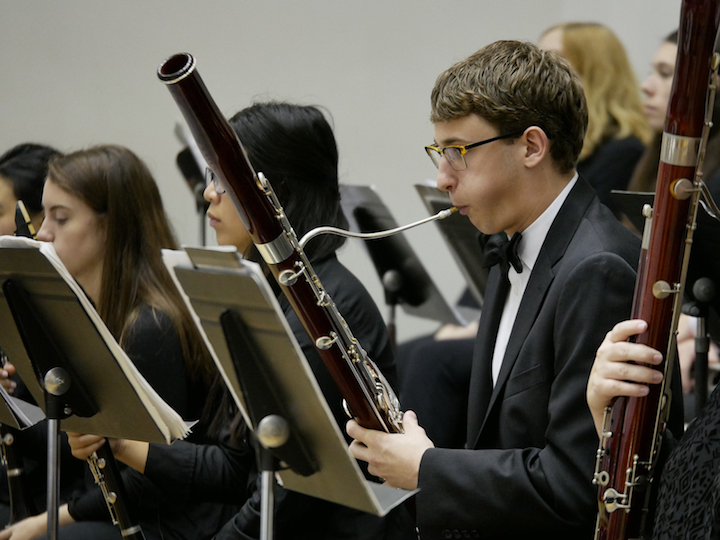
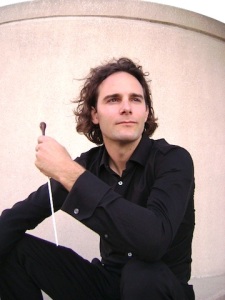











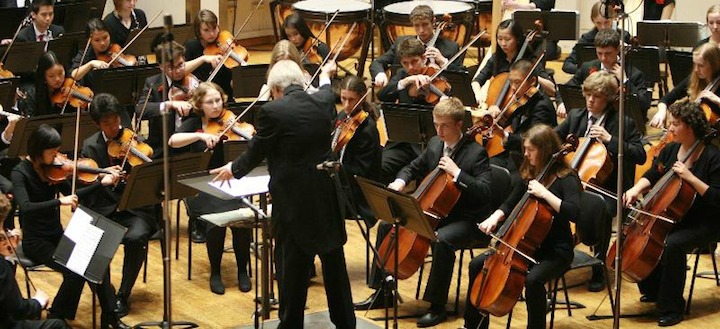





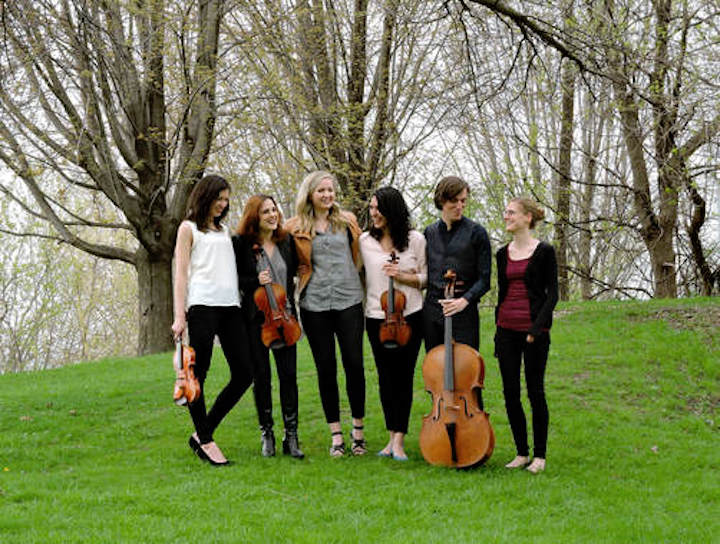

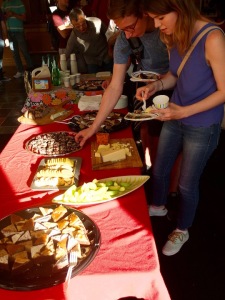
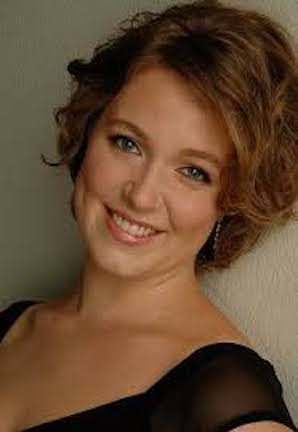

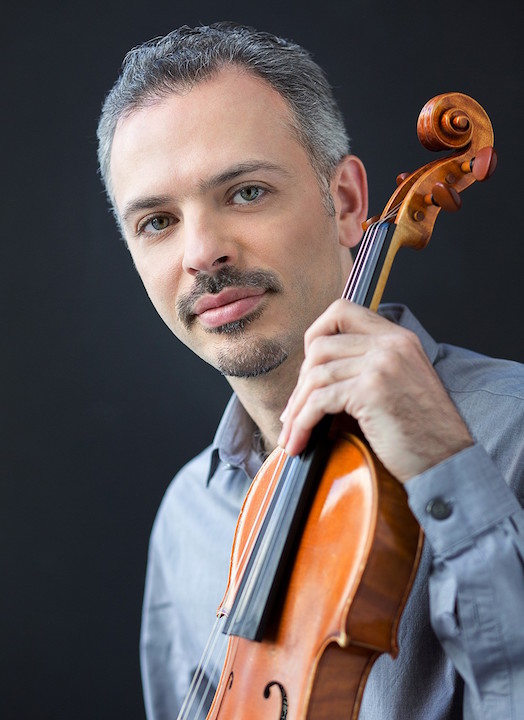
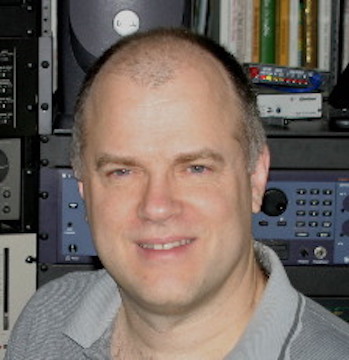

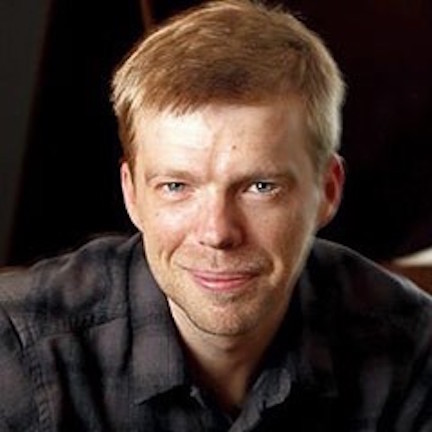
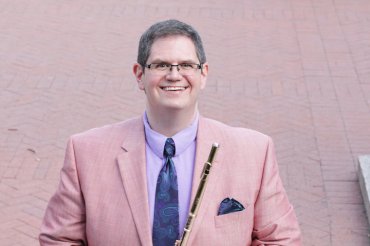
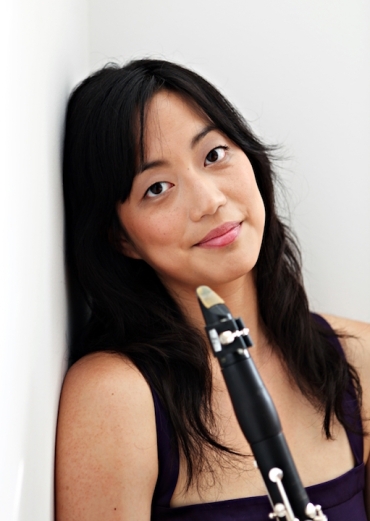


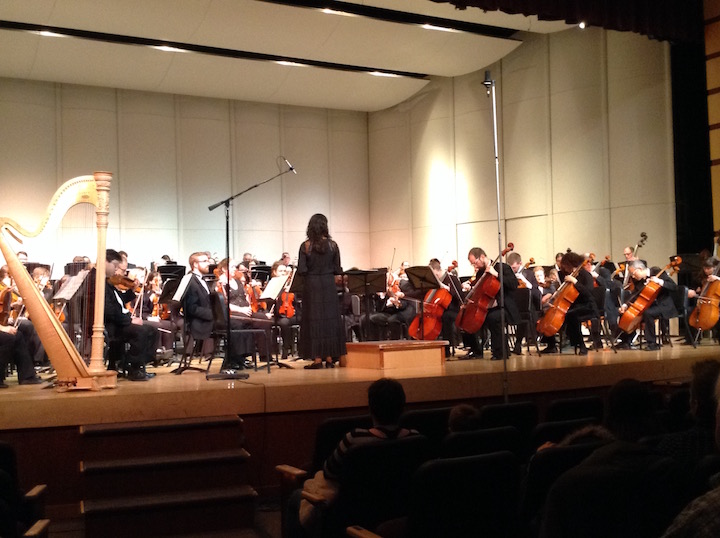


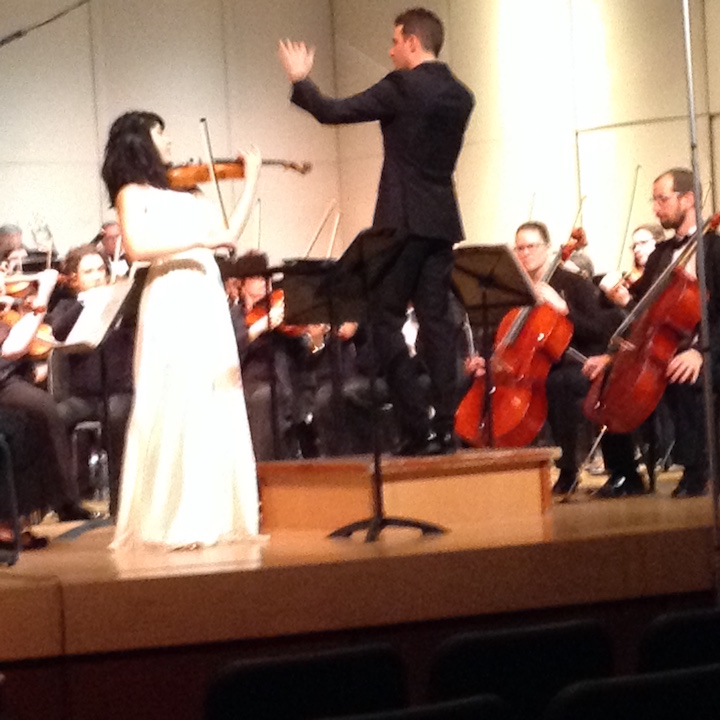
Classical music: What composer or piece of music would you like to hear once the coronavirus is contained and concert halls open again?
3 Comments
PLEASE HELP THE EAR. IF YOU LIKE A CERTAIN BLOG POST, SPREAD THE WORD. FORWARD A LINK TO IT OR, SHARE IT or TAG IT (not just “Like” it) ON FACEBOOK. Performers can use the extra exposure to draw potential audience members to an event. And you might even attract new readers and subscribers to the blog.
By Jacob Stockinger
The news can be confusing and even contradictory about some specifics, but the general direction of reports and statistics about the coronavirus pandemic and deaths from COVID-19 is clear.
It is going to be a long haul until we safely get to go hear live music in large crowds again, just as The Ear talked about earlier this week. (Below is a photo of conductor John DeMain and the Madison Symphony Orchestra in Overture Hall.)
Here is a link to that post: https://welltempered.wordpress.com/2020/08/11/classical-music-its-clear-to-the-ear-it-will-be-at-least-another-full-year-before-music-lovers-in-the-u-s-can-safely-attend-live-concerts-what-do-you-think/
When performers finally get to play, and the concert halls finally get to open, and audiences finally get to listen in person, here is what The Ear wants to know:
What composer would you like hear?
Maybe Beethoven (below) because so much of the Beethoven Year – marking the composer’s 250th birthday this coming December – has been canceled or postponed?
Maybe Johann Sebastian Bach (below) because he just seems so basic, varied and universal?
And what specific piece of music would you like to hear?
Perhaps Beethoven’s Ninth Symphony “Choral” with its “Ode to Joy”? Or maybe the “Eroica” Symphony? Or one of the string quartets?
Perhaps the “St. Mathew Passion” or the Mass in B Minor? Maybe one or more of the cantatas?
Should the music pay homage to the suffering, loss and death – perhaps with Mozart’s “Requiem”? Or Brahms’ “A German Requiem”? Or Mahler’s “Resurrection” Symphony?
Or should the music be upbeat and joyous, like Dvorak’s “Carnival Overture” (below in the YouTube video)? Or some glittering and whirling waltzes by the Strauss family?
Is there an opera that seems especially relevant?
Would you prefer instrumental, choral or vocal music?
And what period, era or style would you prefer?
It will be great to be reacquainted with old and familiar friends. But it would also seem an ideal time to commission and perform new music.
Leave your suggestions in the Comment section with, if possible, a link to a YouTube performance to help us decide.
The Ear wants to hear.
Share this:
Tags: #AGermanRequiem, #AntoninDvorak, #BaroqueMusic, #BeethovenYear, #BlogPost, #BlogPosting, #CarnivalOverture, #ChamberMusic, #ChoralMusic, #ChoralSymphony, #Classicalera, #CommissionedMusic, #ConcertHall, #ContemporaryMusic, #CoronavirusPandemic, #COVID-19, #EroicaSymphony, #FacebookPost, #FacebookPosting, #GustavMahler, #InPerson, #InstrumentalMusic, #JacobStockinger, #JohannesBrahms, #JohannSebastianBach, #JohannStrauss, #LiveMusic, #LudwigVanBeethoven, #MadisonSymphonyOrchestra, #MassinBMinor, #ModernMusic, #NewMusic, #NewsReports, #NinthSymphony, #OdetoJoy, #OperaMusic, #OvertureCenter, #OvertureHall, #PublicHealth, #ResurrectionSymphony, #RomanticMusic, #St.MatthewPassion, #StringQuartet, #TheEar, #VocalMusic, #WolfgangAmadeusMozart, #YouTubevideo, A German Requiem, A German Requiem (Brahms), anniversary, Antonín Dvořák, audience, Bach, Baroque, basic, Beethoven, Beethoven Year, birthday, blog, Brahms, cancel, canceled, Carnival Overture, Chamber music, choral, choral music, cinfusing, Classical era, clear, comment, commission, commissioned music, composer, concert hall, conductor, contain, contained, contemporary, contradictory, coronavirus, covid, crowd, death, December, direction, Dvorak, Early music, era, Eroica Symphony, Facebook, familiar, forward, friend, fundamental, gliterring, Gustav Mahler, hear, ideal, in person, instrumental music, Jacob Stockinger, Johann Sebastian Bach, Johann Strauss, Johannes Brahms, joyous, like, link, listen, live music, long haul, loss, Ludwig van Beethoven, Madison Symphony Orchestra, Mahler, Mass in B Minor, modern, Mozart, new, New Music, Ninth Symphony, Ode to Joy, old, open, opera, Orchestra, Overture, Overture Center, Overture Center for the Arts, Overture Hall, pandemic, performers, period, piece, post, posting, postpone, postponed, prefer, Public health, reacquainted, relevant, reports, Requiem, Resurrection, Resurrection Symphony, Romantic, safely, safety, section, share, specific, specifics, St Matthew Passion, statistics, Strauss, String quartet, style, suggestion, syffering, symphony, tag, The Ear, time, universal, upbeat, varied, vocal, vocal music, week, whirling, Wolfgang Amadeus Mozart, YouTube